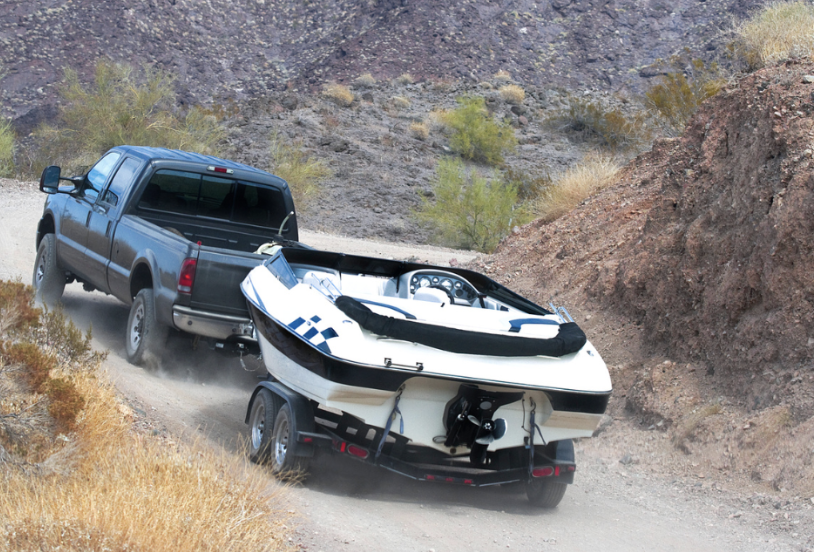Towing your vehicle can be a stressful experience, especially if you aren’t prepared. In this ultimate guide to car towing, we’ll explain everything you need to know to ensure your vehicle is ready for a smooth tow. We’ll provide the necessary steps and tips to give you a safe and efficient towing experience, relieving you of any potential stress.
Why Is Proper Preparation Essential?
Proper preparation is crucial for several reasons:
- Safety: Ensuring your vehicle is ready for towing minimizes the risk of accidents or damage to your car.
- Efficiency: A well-prepped vehicle can make the towing process quicker and more straightforward.
- Cost-Effectiveness: Avoiding potential damage can save you from costly repairs.
Step-by-Step Guide to Prepping Your Car for Towing
- Understand Your Vehicle’s Towing Capacity: Understanding your vehicle’s towing capacity is a critical step that should not be overlooked. This information is usually found in the owner’s manual or the manufacturer’s website and can prevent severe damage and unsafe driving conditions. Exceeding your car’s towing capacity is a risk that should be avoided at all costs.
- Choose the Right Towing Equipment: Choosing the right towing equipment is a crucial decision that can significantly impact the safety and smoothness of your tow. If you’re uncertain, call Tow Pro to advise you on the best option. There are various types of towing equipment available, each suited to different needs:
- Tow Dolly: Ideal for front-wheel-drive vehicles, a tow dolly lifts the front wheels off the ground.
- Flatbed Trailer: Suitable for all types of vehicles, it keeps all four wheels off the ground.
- Tow Bar: This is used for flat towing (all four wheels on the ground), commonly for short distances.
- Inspect and Maintain Your Vehicle: Before towing, perform a thorough inspection of your vehicle:
-
- Check Tires: Ensure your tires are correctly inflated and in good condition. Worn-out tires can be dangerous during towing.
- Inspect Brakes: Your braking system should be fully functional. If you notice any issues, address them before towing.
- Fluid Levels: Check all fluid levels, including oil, transmission, and brake fluid. Top up if necessary.
- Secure Loose Items: Remove or secure any loose items inside your vehicle. Loose objects can shift during towing, potentially causing damage or creating hazards.
- Disconnect the Battery (if necessary): Disconnecting your car battery to prevent draining is advisable for longer tows but may not be required for shorter distances.
- Prepare the Towing Vehicle: If you’re using your vehicle to tow, ensure it’s equipped with the necessary towing package, including a hitch and wiring harness. Also, confirm that your towing vehicle can handle the weight of the towed vehicle. Check out our previous blog for instructions on calculating your vehicle’s towing ability.
Connecting Your Vehicle to the Towing Equipment:
-
- Attach the Tow Bar or Dolly: Follow the manufacturer’s instructions to attach your vehicle’s tow bar or dolly securely. Double-check all connections to ensure they’re tight and secure.
- Connect Safety Chains: Safety chains are a crucial backup in case the primary connection fails. Cross the chains under the hitch and attach them to both vehicles, leaving enough slack for turning.
- Check Lights and Signals: Proper lighting is essential for safe towing. Ensure the towed vehicle’s brake lights, turn signals, and hazard lights are synced with the towing vehicle.
Testing and Final Checks:
Before hitting the road, take a few moments to perform final checks:
- Brake Test: Drive a short distance and apply the brakes to ensure they function correctly.
- Signal Test: Verify that all signals and lights are working in unison.
- Double-Check Connections: Re-inspect all connections, including the hitch, tow bar, and safety chains.
Tips for a Smooth Towing Experience:
- Drive Cautiously. When towing, your driving habits need to adjust:
- Slow Down: Drive slower to maintain control and reduce the strain on your vehicle.
- Allow Extra Space: Give yourself extra space for stopping and turning.
- Avoid Sudden Movements: Make smooth, gradual turns and lane changes.
- Plan Your Route: Choose a route that avoids heavy traffic, steep inclines, and sharp turns. Highways and major roads are usually preferable to side streets.
- Regularly Check Your Vehicle: During long trips, take breaks to inspect your vehicle and towing equipment. Check the tire pressure, connections, and fluid levels regularly.
- Use Professional Towing Services: Professional towing services are available if you need help towing your vehicle. Call Tow Pro for a safe and reliable tow.
Tow Pro can quickly arrive at your Middle Tennessee location to assist you. As the towing and hauling experts of Middle Tennessee, we have over 20 years of experience with roadside assistance, vehicle towing, private property impounding, and more! We focus on the client experience and demonstrate that by having REAL people answer all your questions.
If you are looking for a reliable towing company near you, contact us at (615) 256-TOWS (8697), or you can request help online if that’s more convenient.


